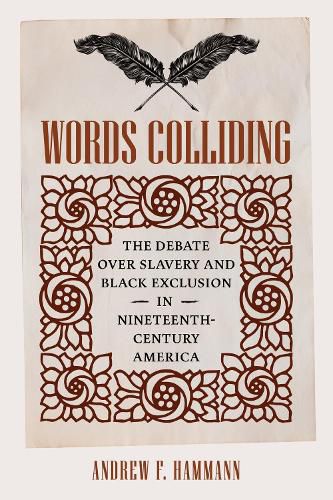Readings Newsletter
Become a Readings Member to make your shopping experience even easier.
Sign in or sign up for free!
You’re not far away from qualifying for FREE standard shipping within Australia
You’ve qualified for FREE standard shipping within Australia
The cart is loading…






The long history and lasting impact of the rhetoric of Black exclusion in American politics and culture
In 1787, Thomas Jefferson declared that the United States was destined to become a nation free of slavery - and of its entire Black population. Following his cue, Henry Clay and other prominent politicians founded the American Colonization Society in 1816, launching the Black expatriation ('colonization') movement, a political force that, over the next eighty years, promoted the removal, with federal support, of the nation's Black population. Throughout this time, Frederick Douglass and the overwhelming majority of Black Americans opposed the colonization movement with great vigor and conviction, characterizing it as one of their greatest enemies, second only to slavery itself.
Words Colliding offers the fullest account to date of this political debate, highlighting its dramatic impact on the national conversations regarding enslavement and Black civil rights. Colonization advocates claimed that centuries of racialized bondage had made civic equality impossible. Black activists vehemently rejected this claim, denying that Black freedom was a national problem and warning that colonization rhetoric encouraged and justified racial oppression, in its varied forms, both during the pre-Civil War decades and the long era of Jim Crow, the afterlives of which persist to this day.
$9.00 standard shipping within Australia
FREE standard shipping within Australia for orders over $100.00
Express & International shipping calculated at checkout
The long history and lasting impact of the rhetoric of Black exclusion in American politics and culture
In 1787, Thomas Jefferson declared that the United States was destined to become a nation free of slavery - and of its entire Black population. Following his cue, Henry Clay and other prominent politicians founded the American Colonization Society in 1816, launching the Black expatriation ('colonization') movement, a political force that, over the next eighty years, promoted the removal, with federal support, of the nation's Black population. Throughout this time, Frederick Douglass and the overwhelming majority of Black Americans opposed the colonization movement with great vigor and conviction, characterizing it as one of their greatest enemies, second only to slavery itself.
Words Colliding offers the fullest account to date of this political debate, highlighting its dramatic impact on the national conversations regarding enslavement and Black civil rights. Colonization advocates claimed that centuries of racialized bondage had made civic equality impossible. Black activists vehemently rejected this claim, denying that Black freedom was a national problem and warning that colonization rhetoric encouraged and justified racial oppression, in its varied forms, both during the pre-Civil War decades and the long era of Jim Crow, the afterlives of which persist to this day.